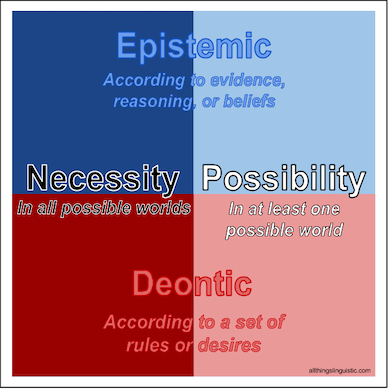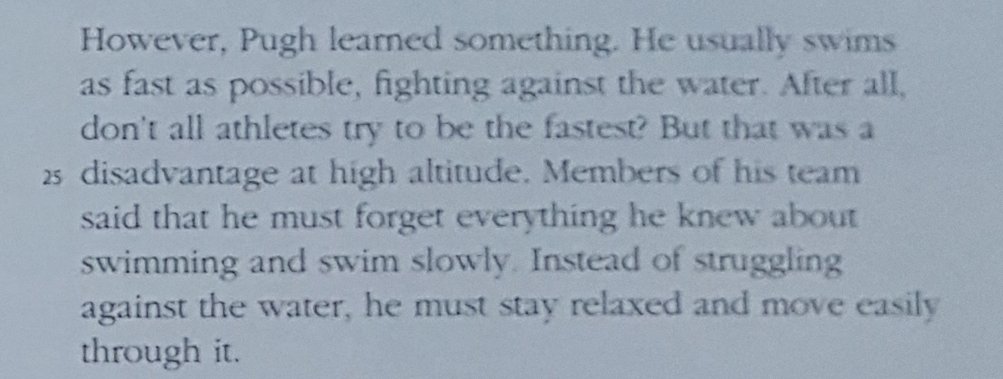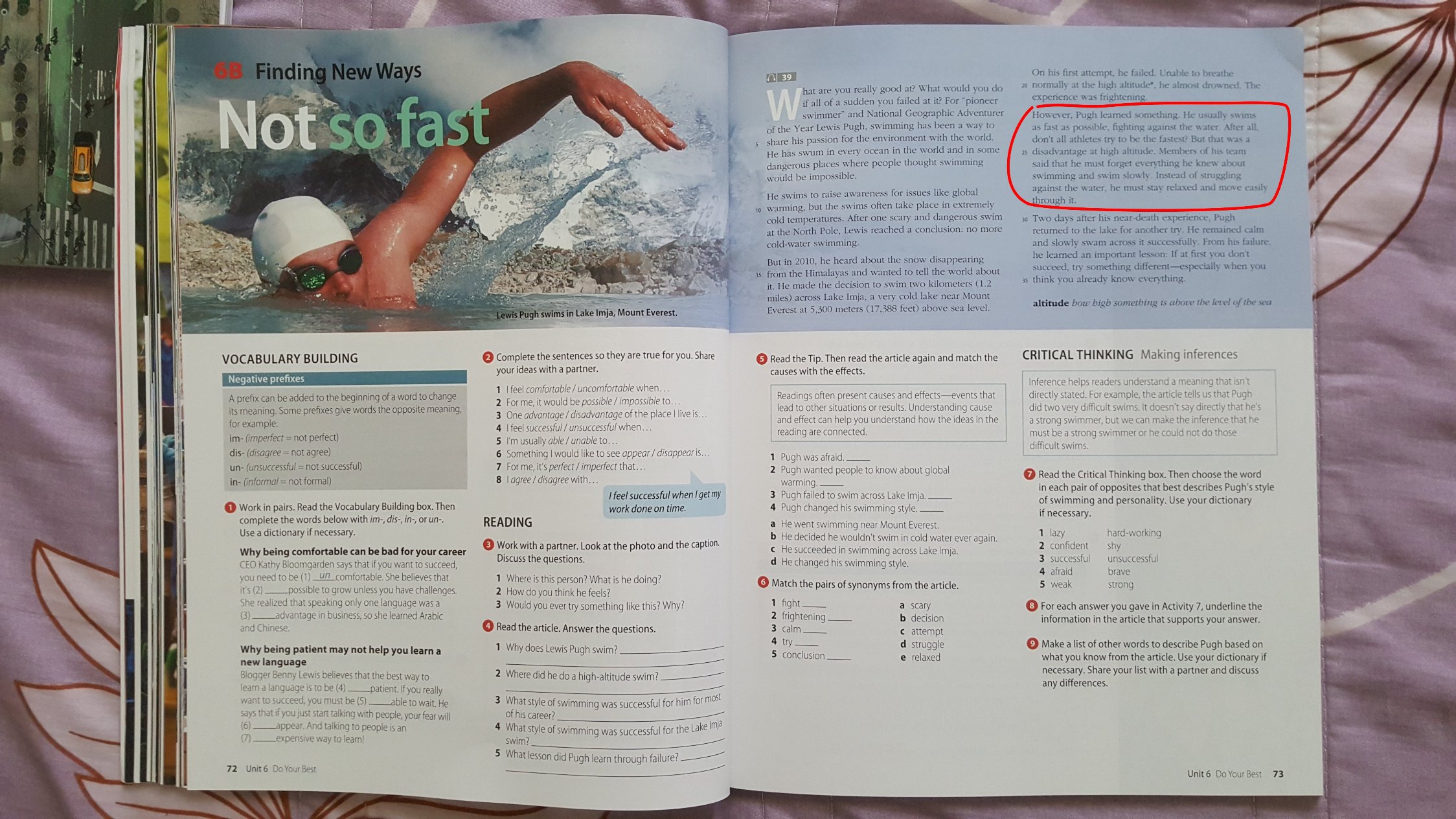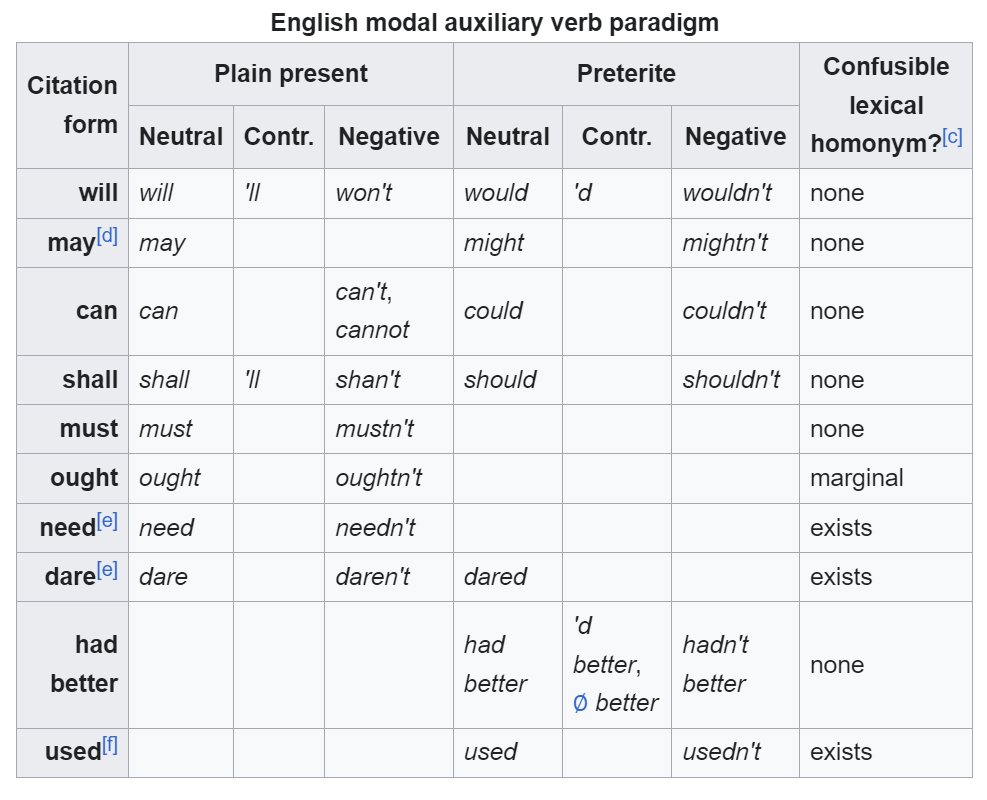The passage speaks about Lewis Pugh, a swimmer, an idealist and a fervent environmentalist who swims the icy waters of lake Imja, 5,300 metres above sea level.
He failed the first time because he was swimming fast, therefore his crew urged him to change tactics and say at this altitude he must forget [present] everything he knew about swimming [past]; instead of swimming fast he must swim [present] as slowly as possible.
The original text uses “said" but if the author had written say it would have been easier to see why the modal verb must was kept and not substituted with had to. With had to the reader would have lost the sense of urgency, immediacy and drama in the team members' voice that the historical present has.
The historical present is used to narrate past events, it brings the action alive, it also adds drama to a story, which is why some call it the dramatic present. The deontic must employed in the original text is often uttered by authoritative figures such as parents, employers, coaches, and doctors but in this scenario the crew is not commanding Pugh to swim slowly; they are urging him to go against his instincts and everything he knows about swimming in perilous situations (swimming in the North Pole is given as an example). In this instance, must denotes deontic necessity.
In her blog, All Things Linguistics, the linguist Gretchen McCulloch explains
Notice that English is generally good at making distinctions between necessity and possibility but bad at making distinctions between epistemic and deontic, which must be cleared up via context. Some languages do make straightforward lexical distinctions between various flavours of modality like epistemic and deontic.
She provides an easy-to-use diagram which illustrates the two different modalities

In the diagram, the blue areas are epistemic modality (according to evidence, reasoning, or beliefs), the red areas are deontic modality (according to a set of rules or desires), the dark areas are necessity (in all possible worlds), the light areas are possibility (in at least one possible world).
Dark blue is epistemic necessity
“It must be raining outside (I can hear the rain).” In all worlds consistent with my beliefs, it is raining outside.
Dark red is deontic necessity
“It must rain this week (in order for the crops not to spoil)” In all worlds consistent with my desires, it rains this week.




